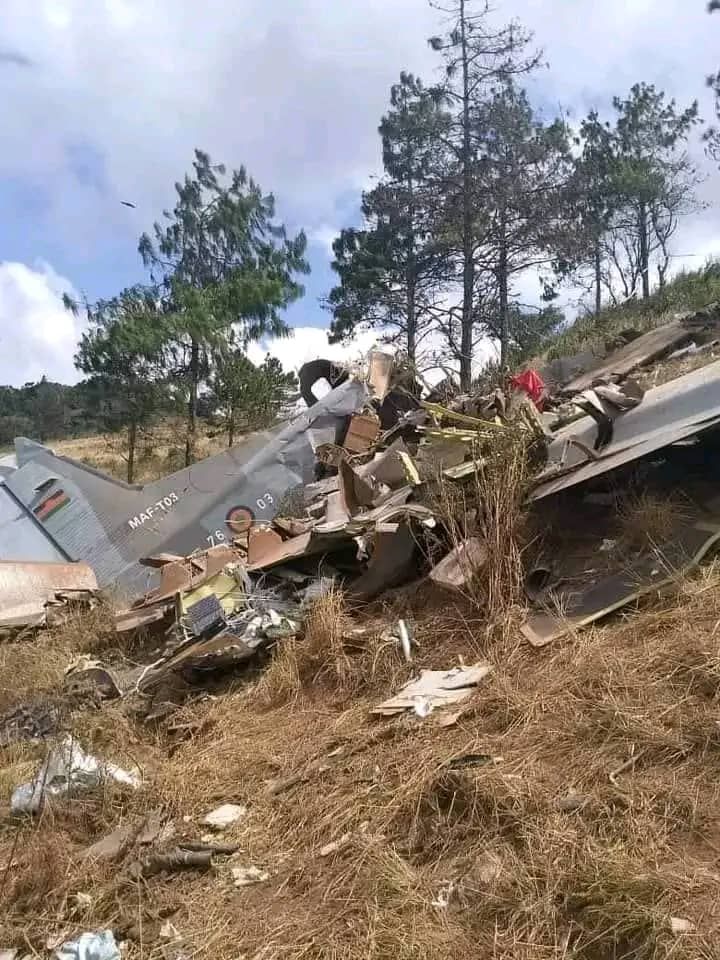By Burnett Munthali
The establishment of a commission of inquiry after a tragic incident, such as a plane crash, serves multiple essential purposes. It is not only a step toward unraveling the causes and circumstances surrounding the tragedy but also a mechanism to provide accountability, ensure transparency, and offer some closure to those affected. The commission’s effectiveness, however, lies heavily in its composition. When examining a commission like the one established for the Chikangawa plane crash, which took the life of former vice president Dr. Saulos Chilima and eight others, it becomes crucial to assess whether the appointed members bring the required expertise, represent key interests, and inspire public confidence.
The primary expectation from a commission investigating a plane crash is that it includes members with technical knowledge and relevant investigative experience. In this case, the inclusion of retired Brigadier Cosgrove Mituka and legal minds such as Justice Jabbar Alide points toward an understanding of investigative processes and critical analysis. However, an inquiry into a technical event like a plane crash ideally demands aviation and engineering professionals who understand the complexities of flight operations, maintenance, and accident investigation. Without such expertise, the commission might face limitations in thoroughly analyzing technical evidence and providing accurate conclusions.

A well-balanced commission needs to incorporate representatives from various sectors and regions affected by the tragedy. The inclusion of community leaders like Inkosi ya Makosi Mbelwa V and Senior Chief Makwangwala offers cultural representation, which is particularly significant in Malawian society. Their involvement signals respect for traditional authority and aims to address concerns from grassroots communities. Additionally, religious figures like Monsignor Patrick Thawale and Bishop Mary Nkosi symbolize moral authority, expected to uphold ethical considerations throughout the investigation.
Legal professionals, such as Allan Chinula SC, are vital for interpreting and upholding the rule of law in commission inquiries. Their role is to ensure that the investigation remains within legal frameworks and respects the rights of all individuals involved, including the victims and the government. In this commission, Mrs. Emma Kaliya, a renowned gender and human rights advocate, can further provide insights into issues like the rights of survivors and families, fostering a human-centric approach to the inquiry.
The appointment of high-profile individuals like Dr. Sunduzwayo Madise and Mr. Sylvester Namiwa is intended to reinforce public confidence and add a level of transparency to the process. However, some voices question the suitability of specific members, with concerns that political affiliations or previous roles could influence the inquiry’s objectivity. Addressing these concerns early on is critical to avoid undermining the commission’s credibility.
5. Representation of Affected Families
Perhaps the most discussed issue is the absence of a direct representative from the families impacted by the crash. This omission has raised concerns among the public and the families themselves, who believe they deserve a voice in a process that directly affects them. A commission that fails to be consider the experiences and insights of those who lost loved ones risks appearing disconnected from the very people it aims to support. Including family representatives or appointed advocates can bridge this gap, ensuring the commission remains people-centered.
The Commission’s Mandate: Clarity and Scope
While the composition of a commission is fundamental, so is the clarity of its mandate. This particular inquiry is expected to submit a comprehensive report to the president by November 30, 2024. With such a limited timeframe, there is an urgent need for the commission to define a clear scope and prioritize areas that will provide the most significant insights and accountability.
The mandate likely includes identifying potential negligence, examining systemic issues within the aviation sector, and making recommendations for future prevention. If the commission’s structure does not support these objectives due to insufficient technical expertise, a reliance on third-party consultants or external technical experts may be necessary.
Public Expectations and the Road Ahead
This commission was long-awaited, and its delay until October 25, 2024—nearly four and a half months after the crash—has created a cloud of skepticism. The public’s patience is now wearing thin, and the commission must work effectively and transparently to restore confidence. Each member’s conduct, the rigor of their findings, and their final recommendations will be under public scrutiny.
Ultimately, the effectiveness of this commission lies in its ability to rise above political influences, maintain transparency, and deliver findings that resonate with both the technical and emotional complexities of this tragedy. For the families, for the country, and for the aviation sector, this is a test of Malawi’s commitment to truth, accountability, and, most importantly, respect for the lives lost.


